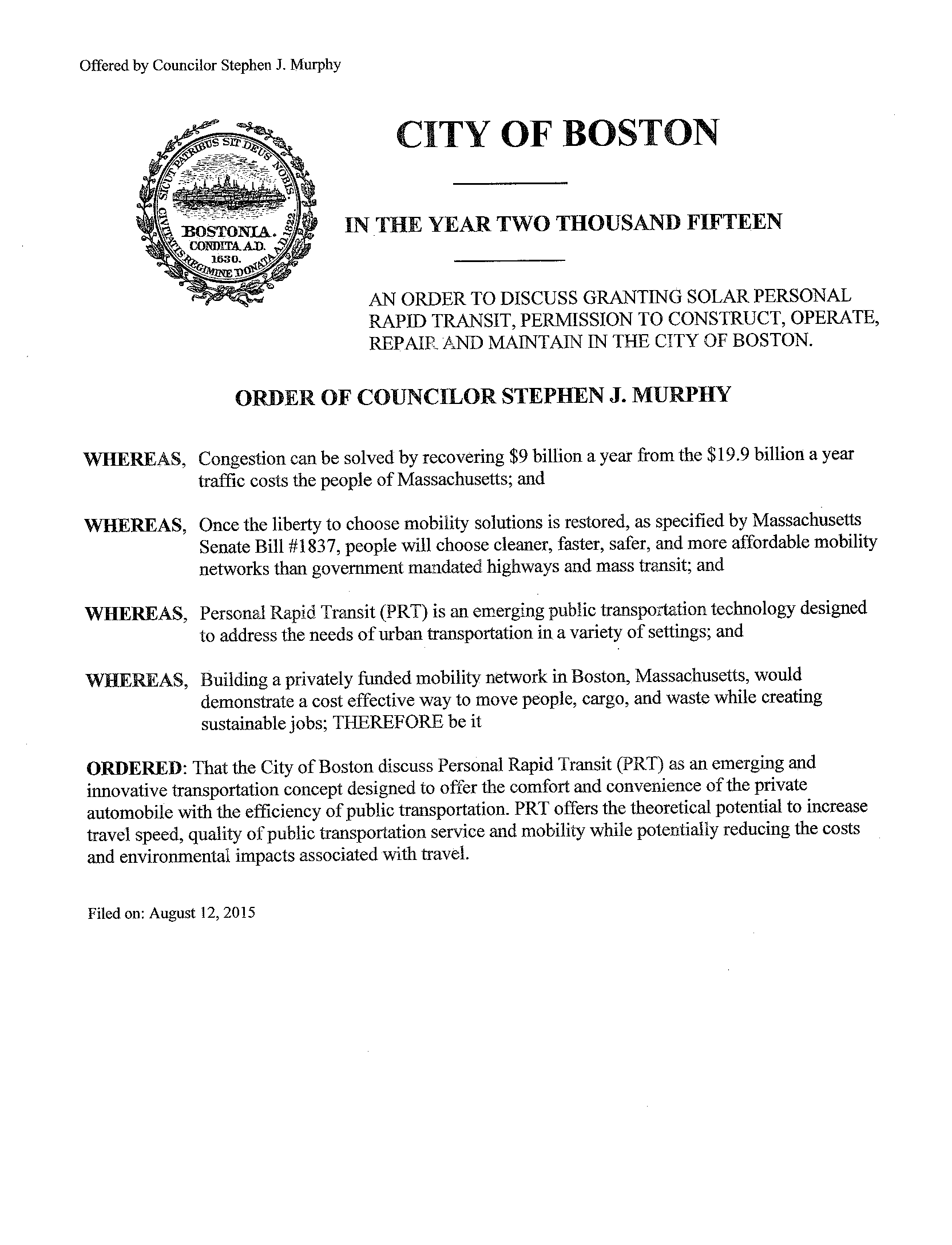- Home
- About
- Advantages of JPods
- Capacity
- Conservation
- Economics
- 10X Capital Savings
- Base the $ on Energy
- Dangerous Economic Assumptions
- Free Markets
- Jobs
- Land Use
- Linear Barriers to Commerce and Nature
- Metrics: Replace GDP with Disposable Energy
- Parking
- Supply_Demand
- Free Market Efficiency
- Net Energy Decline
- Inaccurate IEA Forecasts
- 'Titanic' Oil Economy
- Paychecks and Oil
- History
- Lifeboat Paradox
- Links
- Management Team
- Metrics
- Payback
- Peak Oil
- Project Flow
- Recipe
- Solar
- Technologies
- What are JPods
- Why JPods®
- Be Involved
- Key Steps
- Franchise Agreement (draft)
- Solar Mobility Act
- Own and Operate a JPods Network
- Become a JPods Supplier
- Design Your Own JPods Network
- Investors
- Spread The Word
- 8-80 Cities
- Agreements
- Cities of the Sun
- Domestic War by 2023
- Kitty Hawk Network
- Regulation
- San Jose State
- Scale Model
- Railroad 1862
- News
- Cities
- Contacts
You are here
Boston
90 Second Massachusetts JPods from Bill James on Vimeo.
Videos of Boston City Council hearing, Oct 5, 2015. We believe the hearing will result in a Boston City Council resolution of support for Massachusetts Senate Bill #1837.
Congestion can solved by recovering $8 billion a year from the $15.7 billion a year traffic costs the people of Massachusetts. Once liberty to choose mobility solutions is restored, as specified by Massachusetts Senate Bill #1837, people will choose cleaner, faster, safer, and more affordable mobility networks than government mandated highways and mass transit. MA Climate Change Report.
Yearly traffic costs in Massachusetts are about $15.7 billion:
- $6.7 billion per year sent of foreign gasoline (link) ($2.40 per gallon).
- $6.0 billion per year on accidents (link).
- $3.0 billion per year spent on congestion (link).
Massachusetts desperately need to save $15.7 billion per year in traffic costs:
- Source 1: State owes $89 billion, or $28,000 per tax payer.
- Source 2: State owes $82.9 billion, or $32,900 per taxpayer.
Yet, radically safer and more efficient transportation is very well understood:
- Freight railroads average 476 ton-miles per gallon (link).
- The Personal Rapid Transit (PRT or podcar) network in Morgantown has delivered 110 million oil-free, injury-free passenger-miles since being built as a solution to the 1973 Oil Embargo in 1975. In that same period of zero injuries, 1.7 million Americans died on the government highway monopoly. Highway accidents are not accidents. Who they happen to is random, that they happen is a design feature of the highway network.
JPods networks combine the efficiency of railroads with the on-demand service of the Internet, the Physical Internet®.
Senate Bill #1837. Gasoline prices are up 35% in 2016. Unemployment follows gas prices in 2 years.
Unfortunately, after years of effort, 2016 was a very bad year for innovation in Massachusetts. The Governor, his staff, legisalators, and city officials killed legislation that would have allowed solutions to Oil Famine and Climate Change to be deployed. As a result of delays, in the next few years consequences of Oil Famine, and then Climate Change will cost vast numbers of lives in Massachusetts.
Giving MBTA and MassDOT a monopoly directly violates Article 6 of the Massachusetts Constitution: "No man, nor corporation, or association of men, have any other title to obtain advantages, or particular and exclusive privileges". The Boston Tea Party was a revolt against the King's transportation monopoly. Article 6 of the Massachusetts Constitution and the "post Roads" restriction in the Federal Constitution was to guard agains the government transportation monopolies we see today that are the cause of oil-wars, Climate Change, traffic deaths, and congestion. The Personal Rapid Transit network in Morgantown, WV has been oil-free, injury-free since it opened in 1975 as a solution to the 1973 Oil Embargo. In that as period of 110 million injury-free passenger-miles, 12,000 people died on Massachusetts highways. Violating Article 6 implemented building infrastructure through low income neighborhoods with the racists networth outcome, $247,500 for white families and $8 for black families.
Life requires energy. Oil is finite. Life powered by oil is terminal. Massachusetts has no oil. US oil production is depleting at 1 million barrels per day per year, US Peak Oil was in 1970, so dependence on Illicit Energy of oil outside self-reliance will result in a substantial die-off in Massachusetts. This die-off is likely to start by 2020; it was narrowly avoided in 2008.
"A new scientific truth does not triumph by convincing its opponents and making them see the light, but rather its opponents eventually die, and a new generation grows up that is familiar with it."
Max Planck, Physicist
Other Massachusetts Networks:
Vintage images of connection between North and South Stations.
The Bill currently in the Joint Transportation Committee. When this bill becomes law, bureacracies will have to write reasons they are rejecting transportation networks that can be built without taxpayer expense that exceed 5 times the gas mileage of automobiles. This will allow Boston to become an 8-80 City (watch video).
Boston Globe article, Aug 13,2015. Please share with your friends. Current transport on Boston MBTA.
Two page summary sheet of how #1837 will retool Massachusetts mobility by recovering $3 billion/year in customer savings and $6 billion/year in profitable revenue from the $19.9 billion/year spent on traffic (print version and email version).
Background of flood control. Talking Points with the Deputy Commanding General, US Army Corps of Engineers.
Link to the success of the Morgantown PRT network and the independent audit showing a payback every 5 years.
Within a Solar Budget
In addition, Massachusetts was founded and liberty established powered within a solar budget. In 1910 Thomas Edison noted it was practical to have all the electrical energy we need provided by sunshine:
"Sunshine is spread out thin and so is electricity. Perhaps they are the same, Sunshine is a form of energy, and the winds and the tides are manifestations of energy..... Do we use them? Oh, no! We burn up wood and coal, as renters burn up the front fence for fuel. We live like squatters, not as if we owned the property.... There must surely come a time when heat and power will be stored in unlimited quantities in every community, all gathered by natural forces. Electricity ought to be as cheap as oxygen...."
Background documents
- A_Secaucus Law 2014-23, Performance Standards. This law applies to transport infrastructure the frame work that ended the century of rotary telephones in communications. It restore transport infrastructure to free markets.
- B_2004-A2031_NJ Legislature Law Directing the Study of PRT.
- C_NJ's $13.5 Billion per Year Gasoline Costs
- D_NHTSA_$871 Billion per Year Cost of Traffic Accidents, $14.4 Billion per Year in NJ
- E_Report NJDOT on the $8.6 Billion per Year Cost of Congestion
- F_Constitutional Basis for Restoring Free Markets to Transport Infrastructure
- G_Mayor of Morgantown Letter on the Effectiveness of the PRT Network in Morgantown
- H_SenateLetter on PRT as the Solution to the 1973 Oil Embargo
- I_7503_Congressional Office of Technology Assessment Study PB-244854 on PRT as the Solution to the 1973 Oil Embargo
- J_WVU PRT Benefit Cost Report_2010
- K_New Jersey Legislature Study by BAH 070515
Economic Development documents
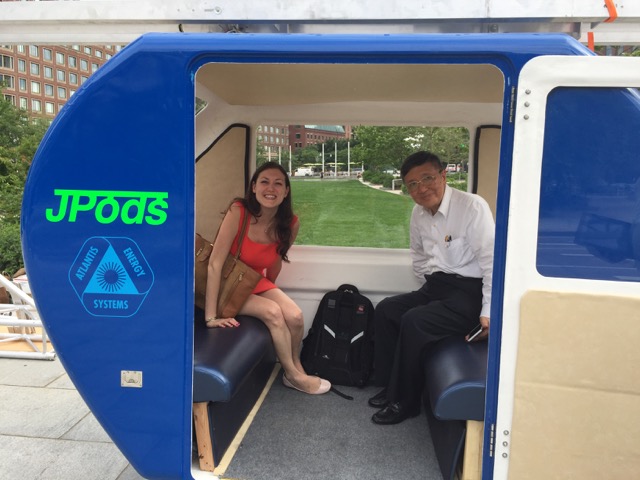
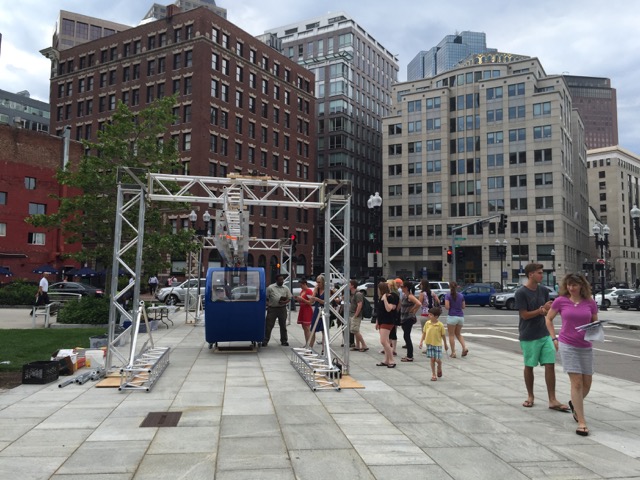
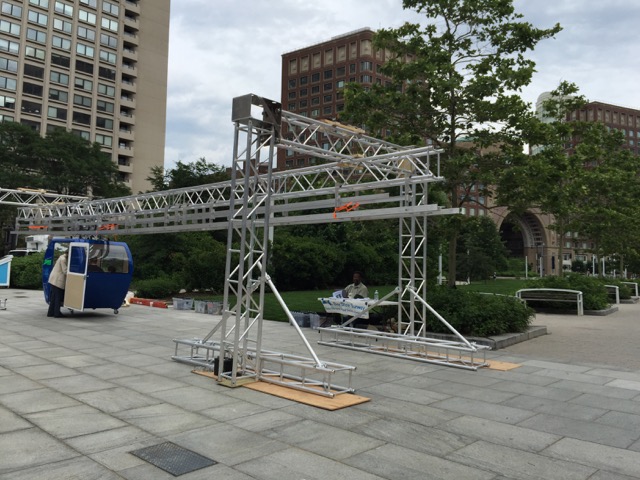
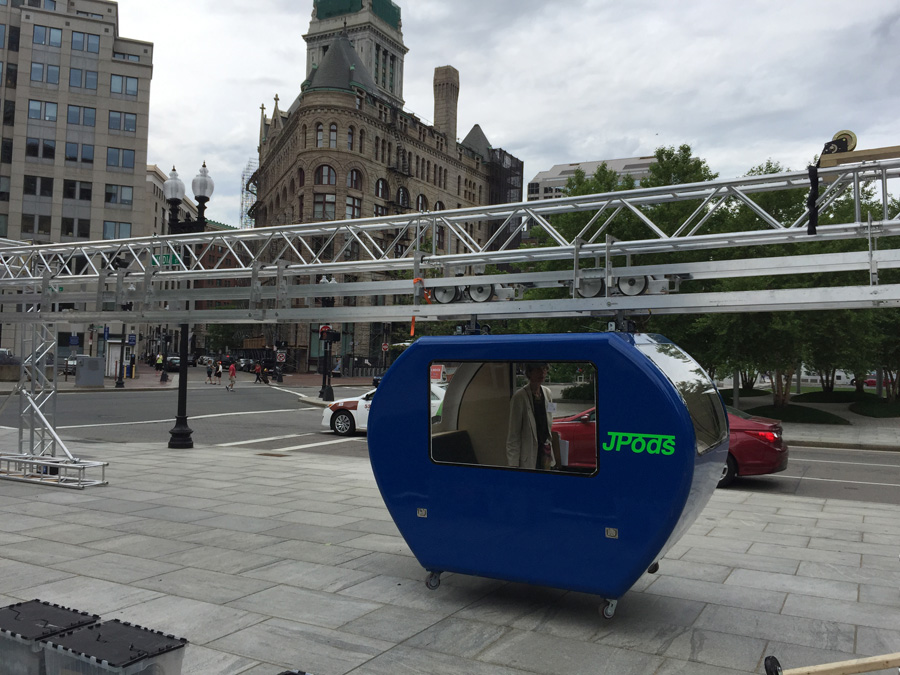
John D. O'Bryant School building the JPods demo unit.


Help design the networks by:
- Clicking on a map to vote for where you want stations.
- Learn to design networks in SketchUp.
- Understand network components.
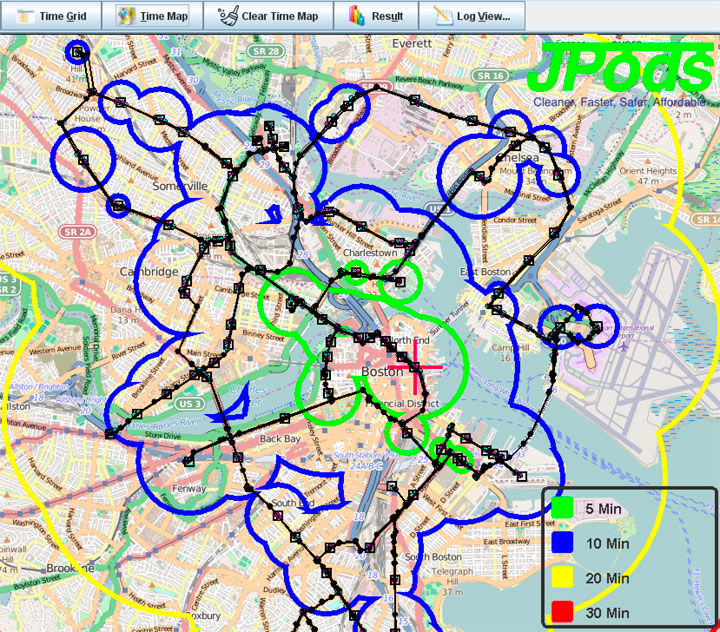
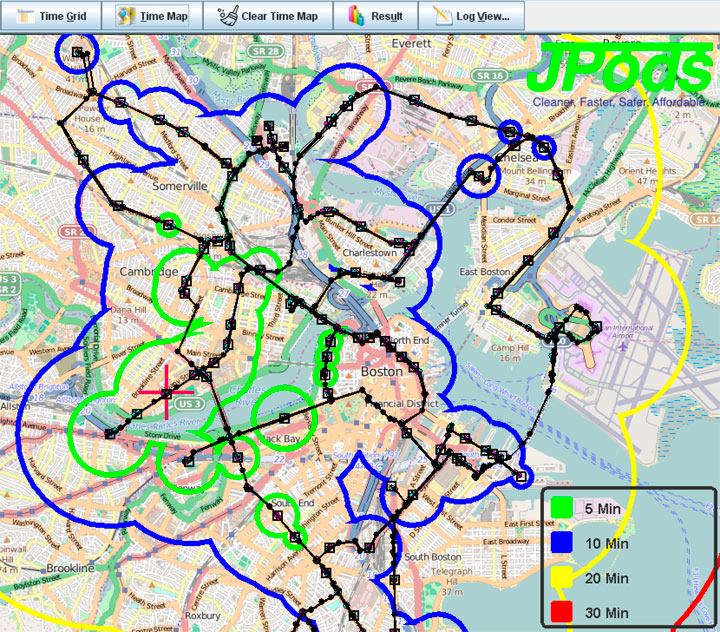
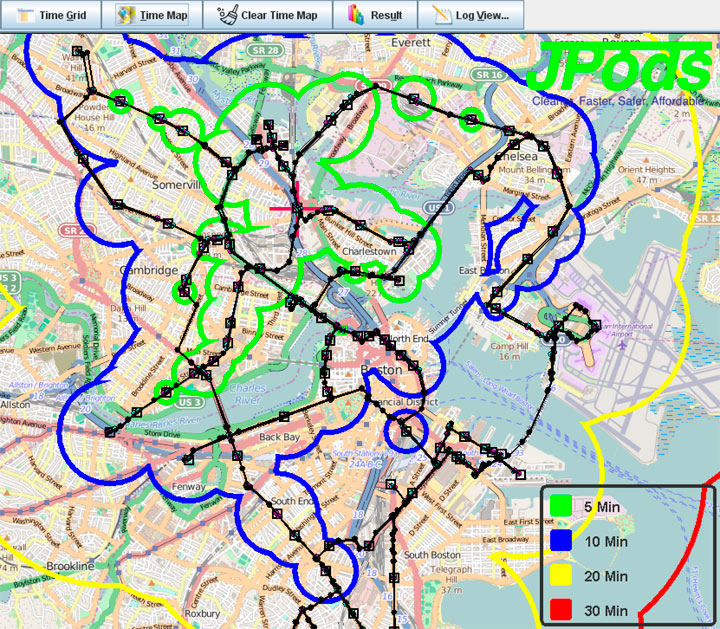
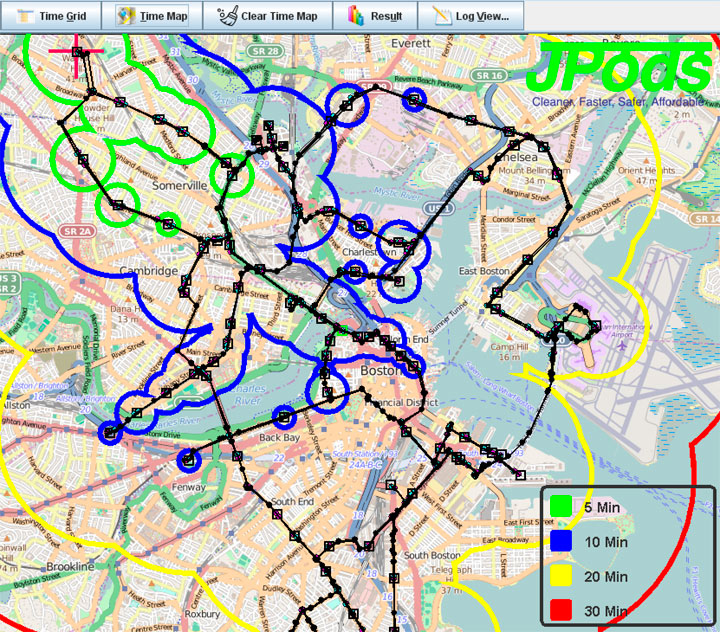
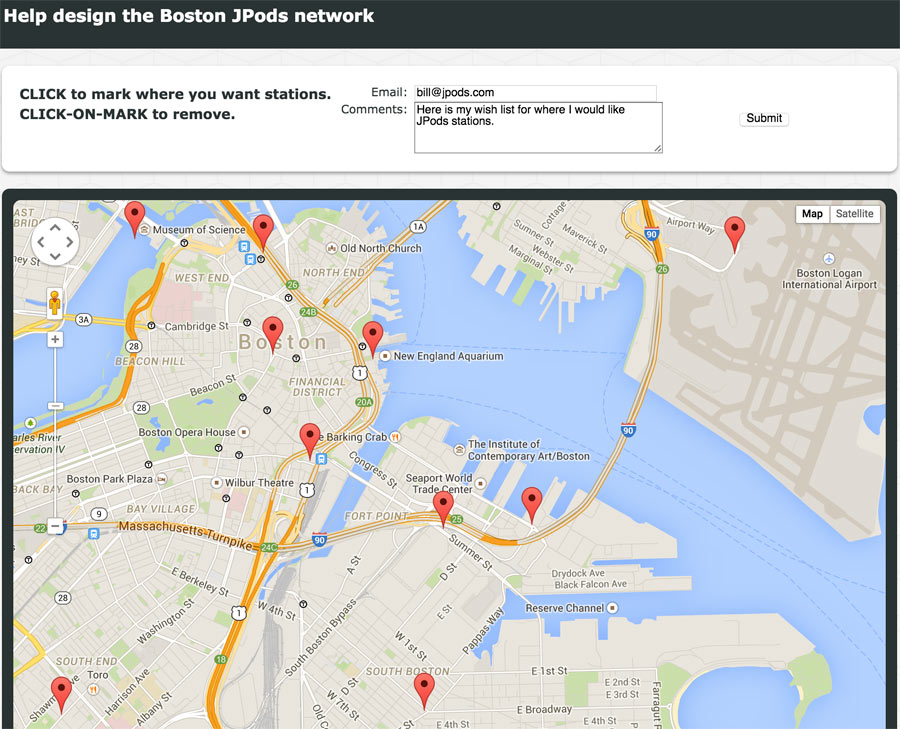
RouteTime Maps showing congestion benefits:
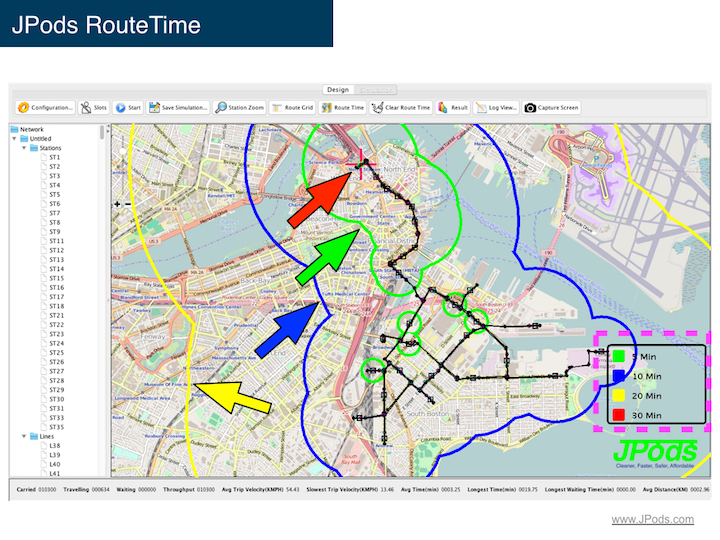
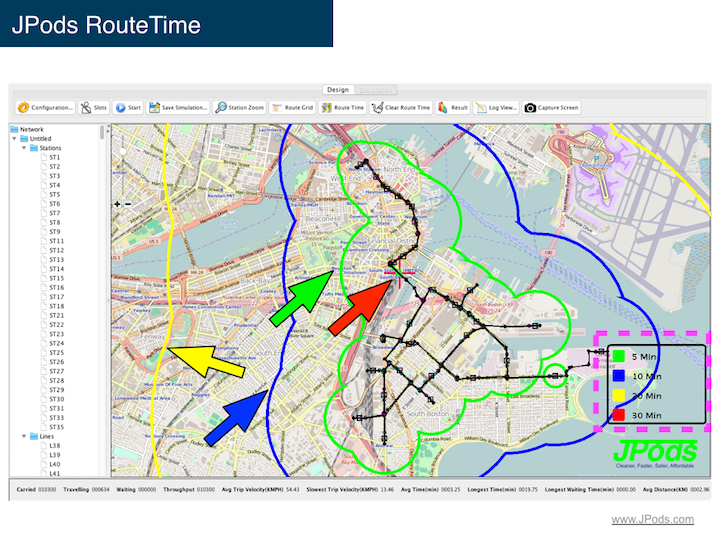
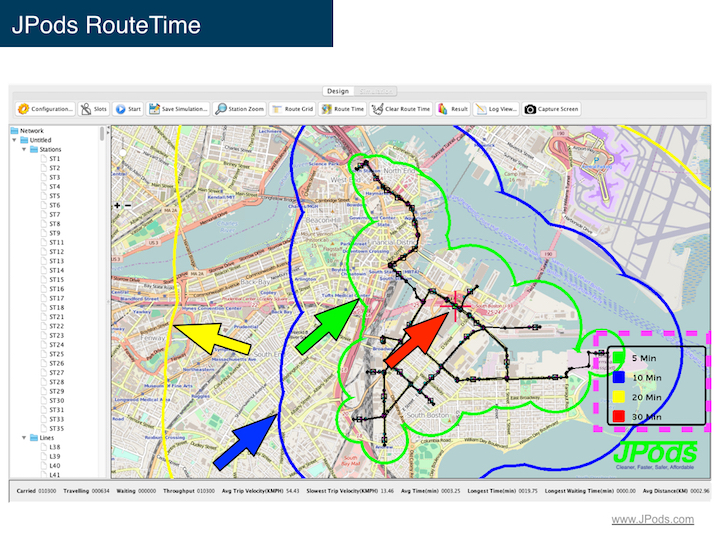
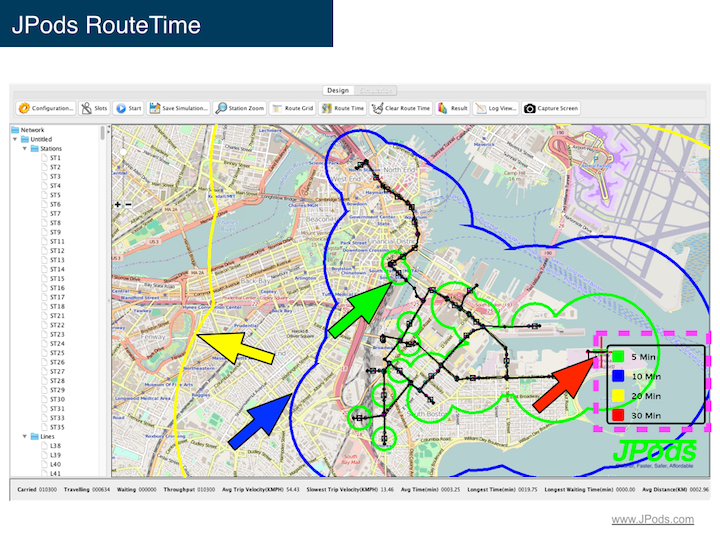
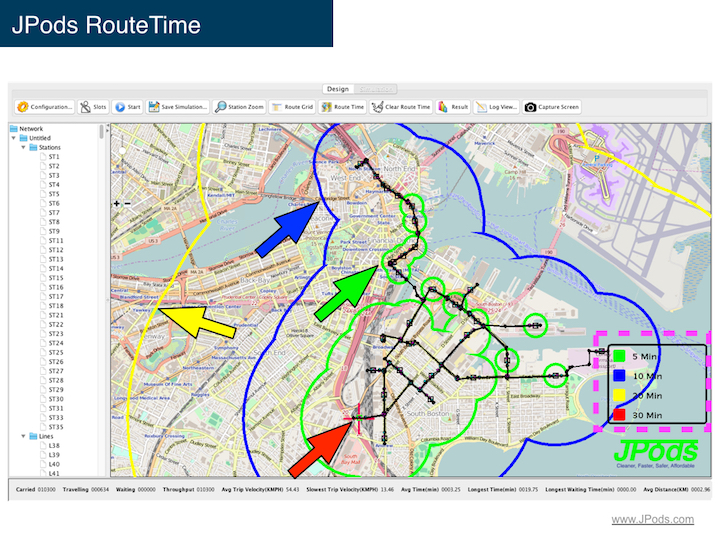
The Reason Massachusetts Senate Bill #1837 is critical is commercializing innovation requires the Rule of Law. Violating the Rule of Law, the Federal communications monopoly resulted in nearly a century of rotary telephones. Millions of jobs were created delivering better services at lower costs after that monopoly was declared unconstitutional in 1982.
Federal violation of the Constitution in communications illustrates
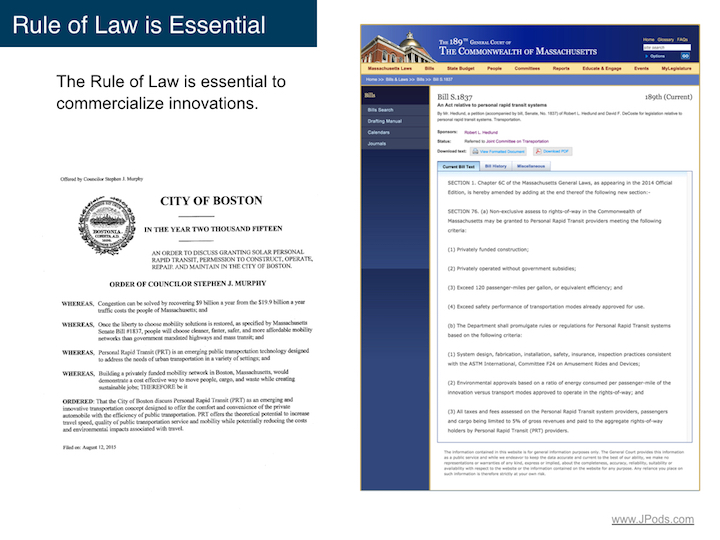
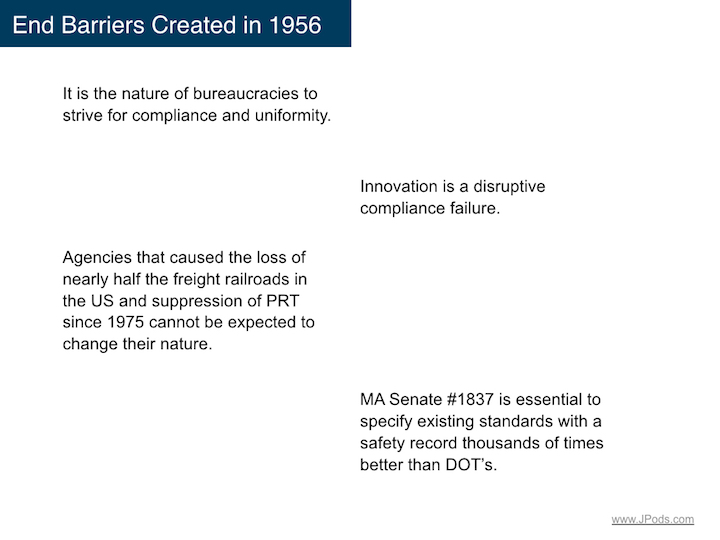
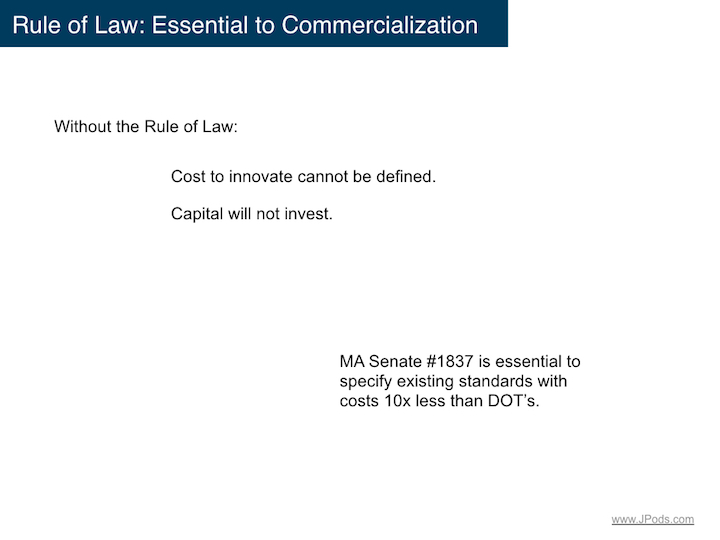
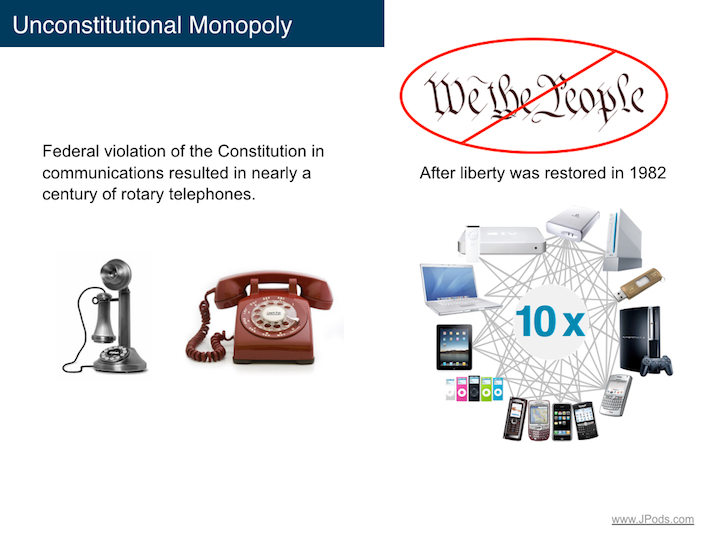
As with the Federal communications monopoly, the Federal transportation monoply protects from competition better networks. Nearly half the freight railroads were bankrupt after The Federal-Aid Highway Act of 1956 removed efficiency as a market force in 1956. DOTs have suppressed efforts to repeat the success of Morgantown's PRT network.
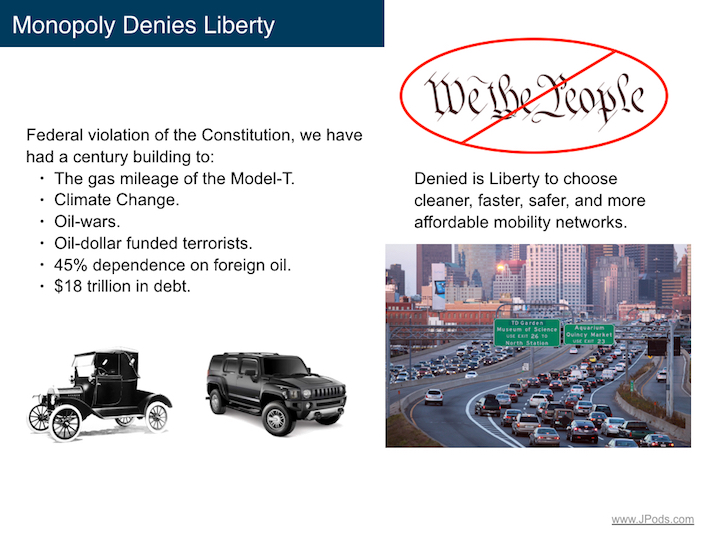
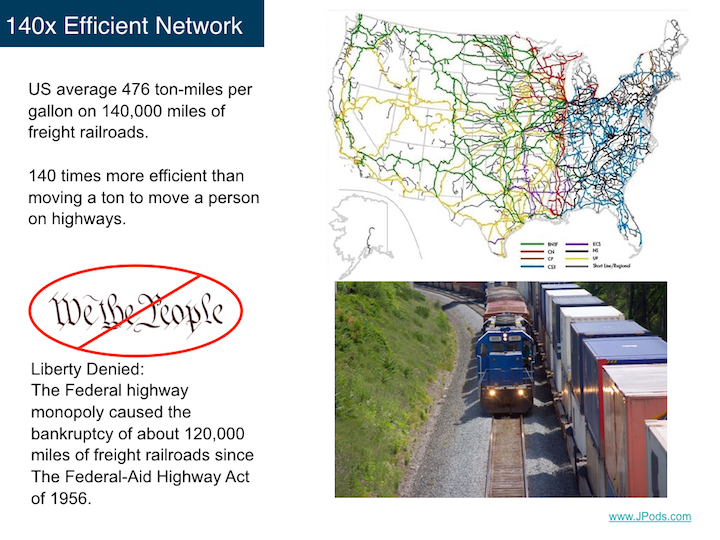
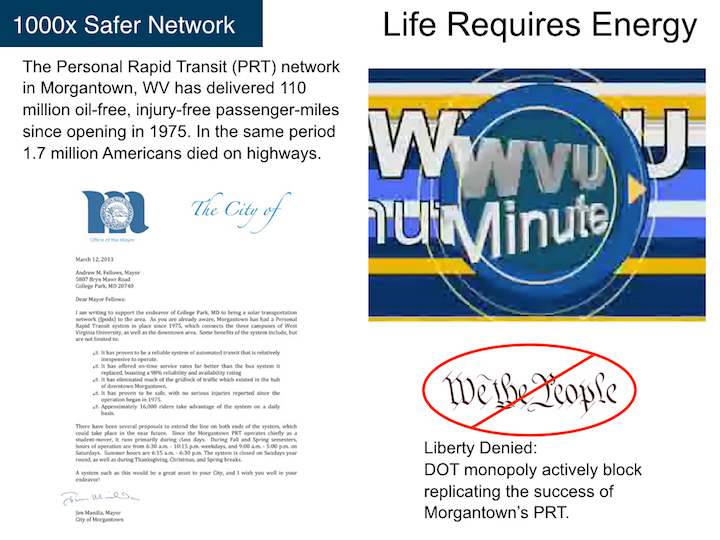
Massachusetts Constitution:
Article IV.
The people of this commonwealth have the sole and exclusive right of governing themselves, as a free, sovereign, and independent state; and do, and forever hereafter shall, exercise and enjoy every power, jurisdiction, and right, which is not, or may not hereafter, be by them expressly delegated to the United States of America in Congress assembled.
Article V.
All power residing originally in the people, and being derived from them, the several magistrates and officers of government, vested with authority, whether legislative, executive, or judicial, are their substitutes and agents, and are at all times accountable to them.
Article VI.
No man, nor corporation, or association of men, have any other title to obtain advantages, or particular and exclusive privileges, distinct from those of the community, than what arises from the consideration of services rendered to the public; and this title being in nature neither hereditary, nor transmissible to children, or descendants, or relations by blood, the idea of a man born a magistrate, lawgiver, or judge, is absurd and unnatural.
Article VII.
Government is instituted for the common good; for the protection, safety, prosperity and happiness of the people; and not for the profit, honor, or private interest of any one man, family, or class of men: Therefore the people alone have an incontestable, unalienable, and indefeasible right to institute government; and to reform, alter, or totally change the same, when their protection, safety, prosperity and happiness require it.
Article VIII.
In order to prevent those, who are vested with authority, from becoming oppressors, the people have a right, at such periods and in such manner as they shall establish by their frame of government, to cause their public officers to return to private life; and to fill up vacant places by certain and regular elections and appointments.
Massachusetts Ratification of the US Constitution:
First, That it be explicitly declared that all Powers not expressly delegated by the aforesaid Constitution are reserved to the several States to be by them exercised.
Fourthly, That Congress do not lay direct Taxes but when the Monies arising from the Impost & Excise are insufficient for the publick exigencies nor then until Congress shall have first made a requisition upon the States to assess levy & pay their respective proportions of such Requisition agreeably to the Census fixed in the said Constitution; in such way & manner as the Legislature of the States shall think best, & in such case if any State shall neglect or refuse to pay its proportion pursuant to such requisition then Congress may assess & levy such State's proportion together with interest thereon at the rate of Six per cent per annum from the time of payment prescribed in such requisition
Fifthly, That Congress erect no Company of Merchants with exclusive advantages of commerce.
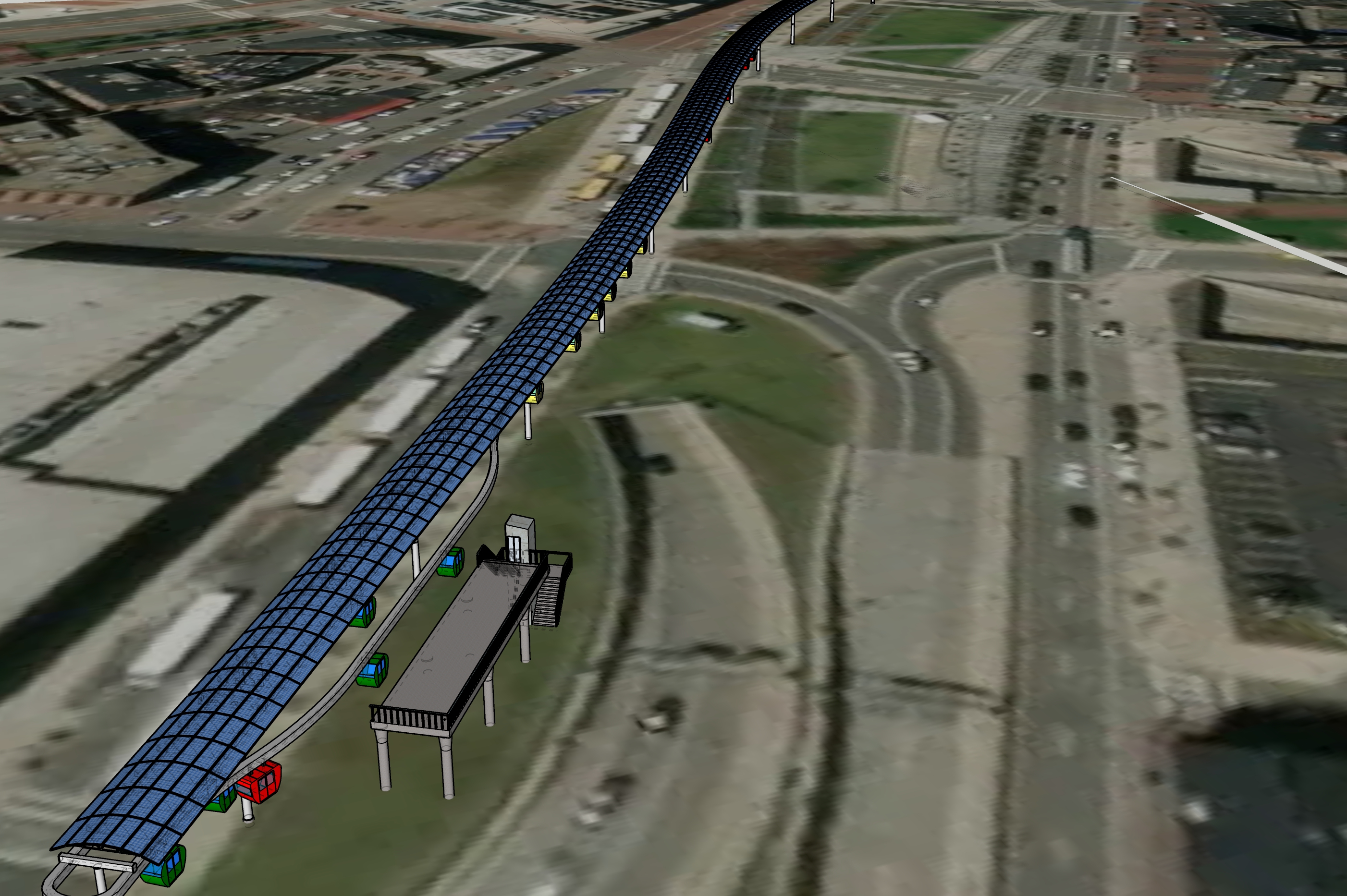
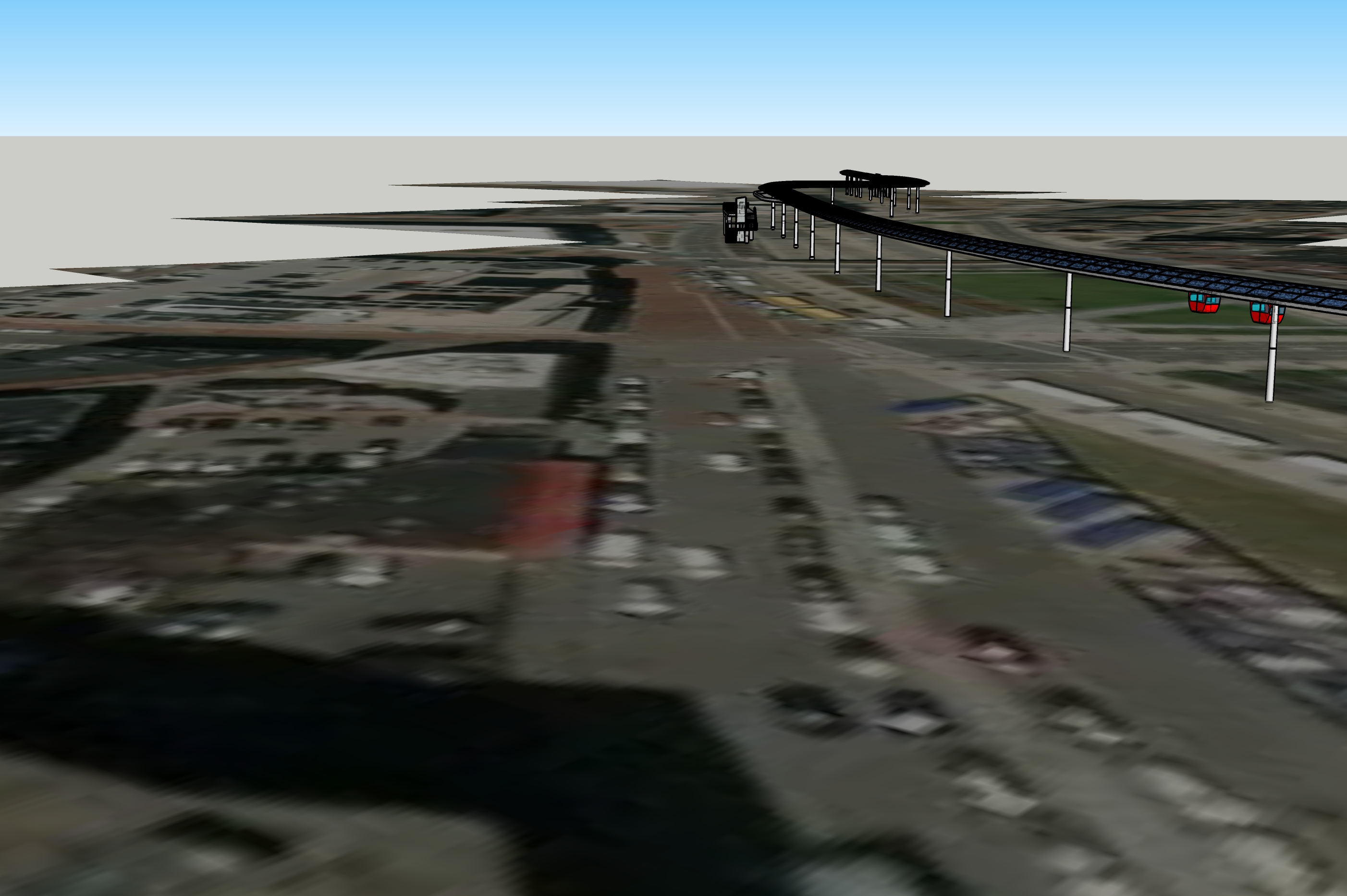
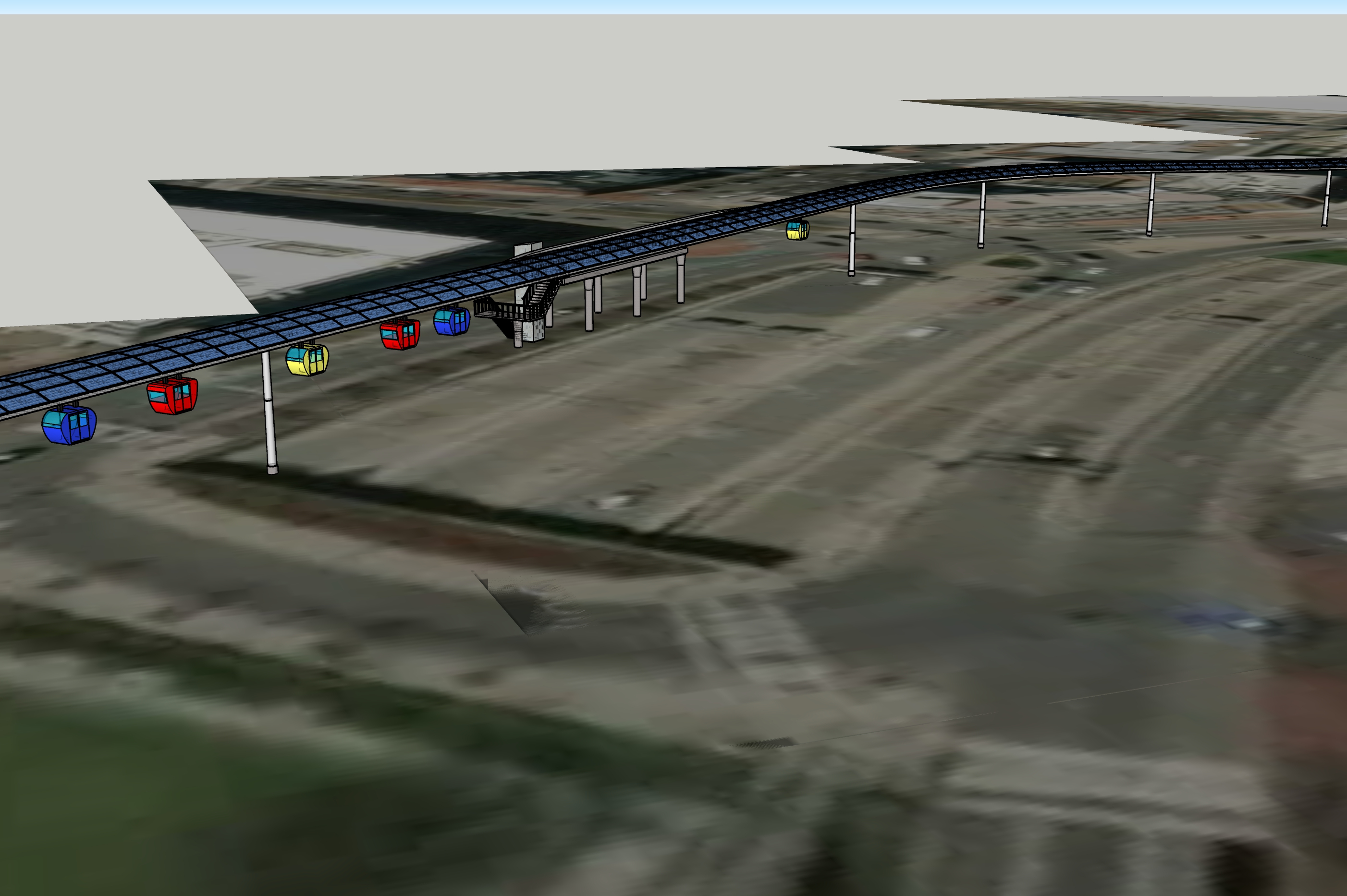
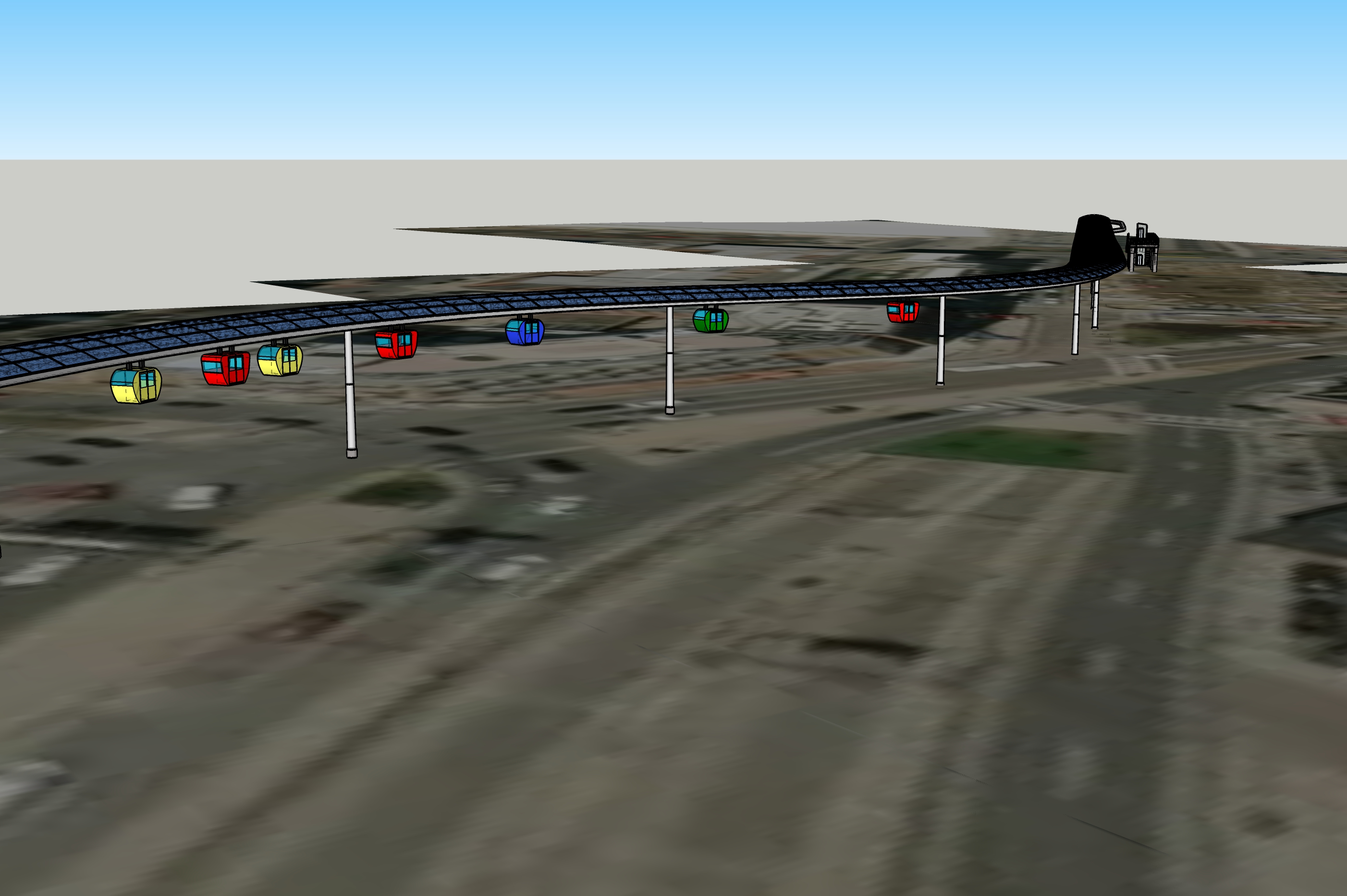
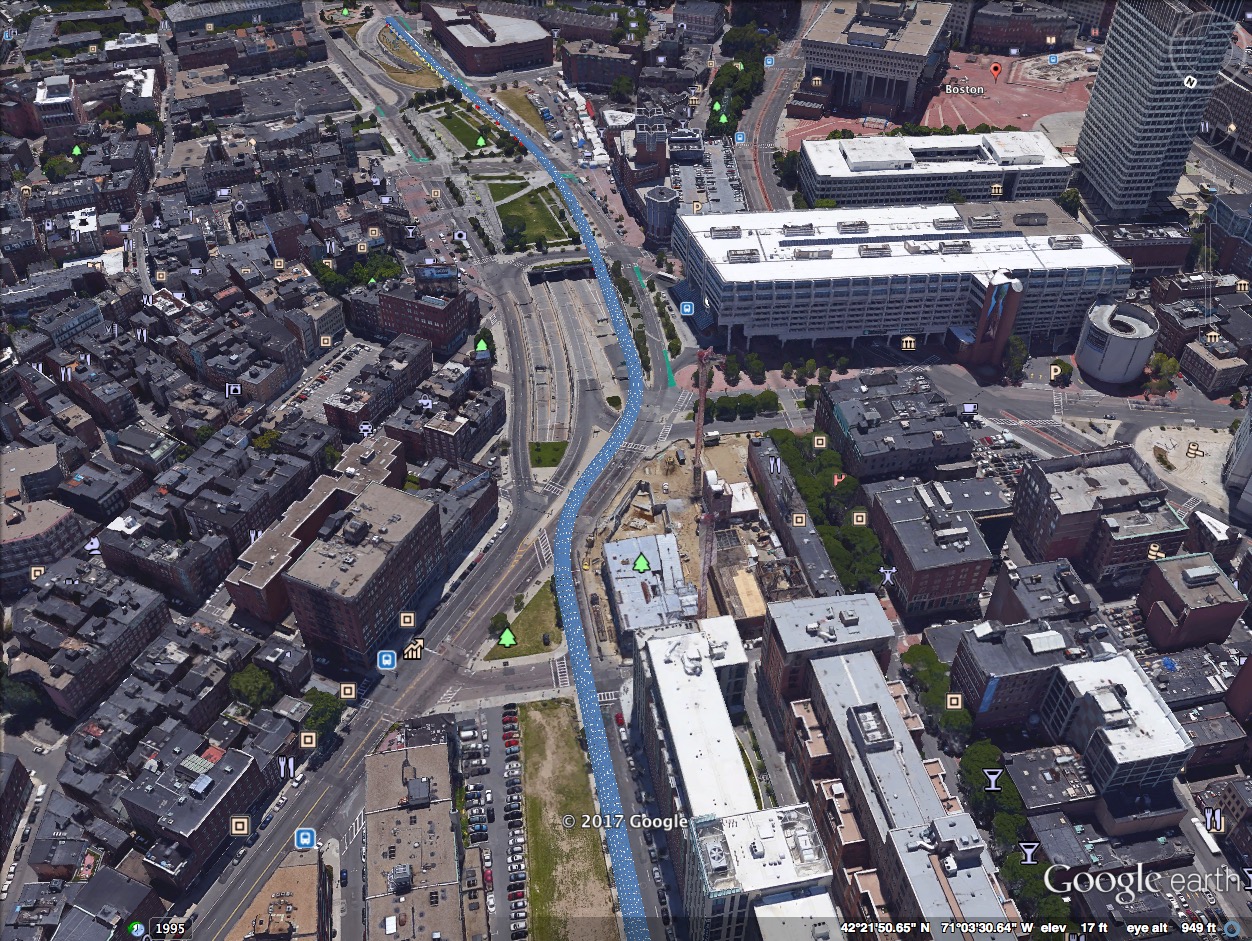
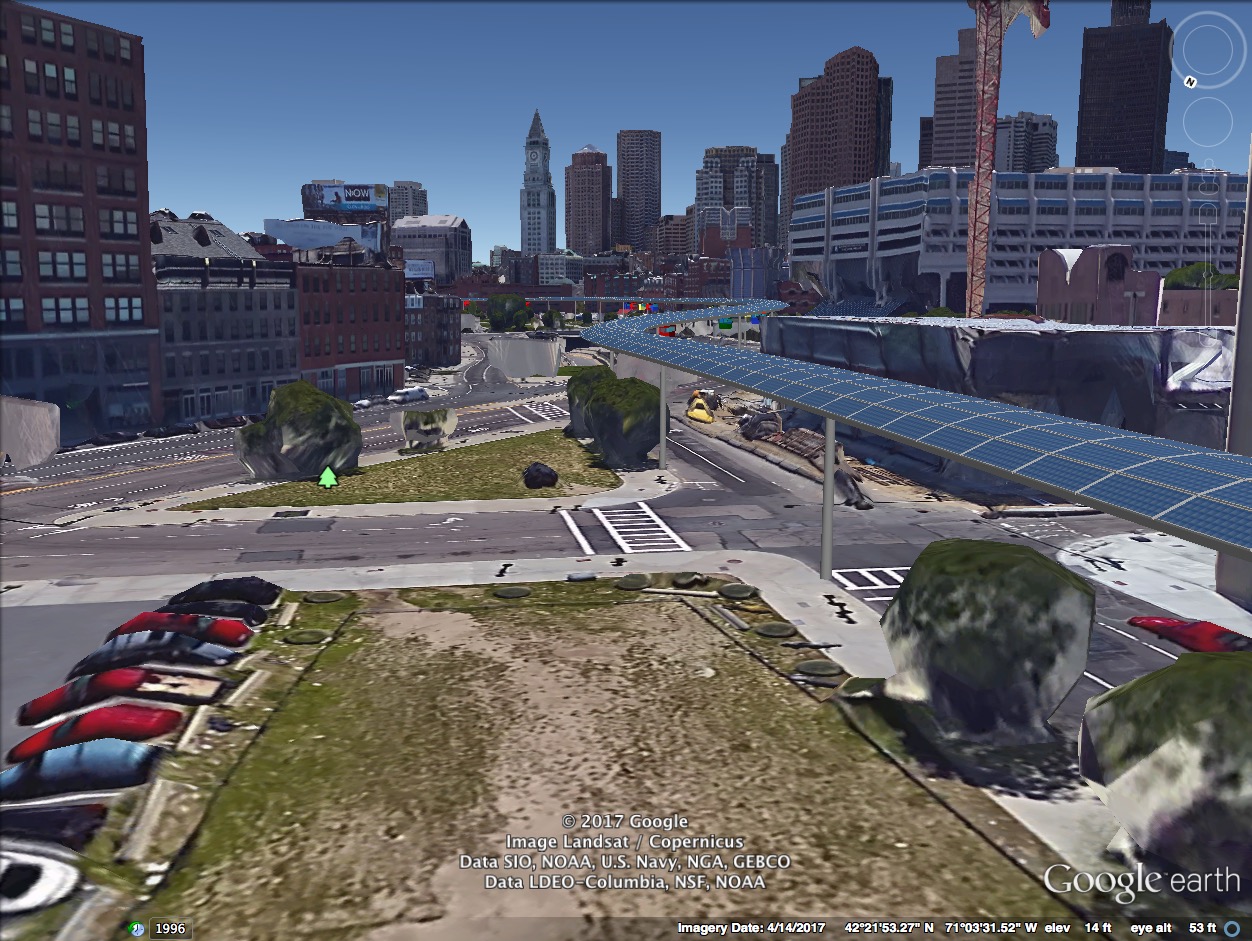
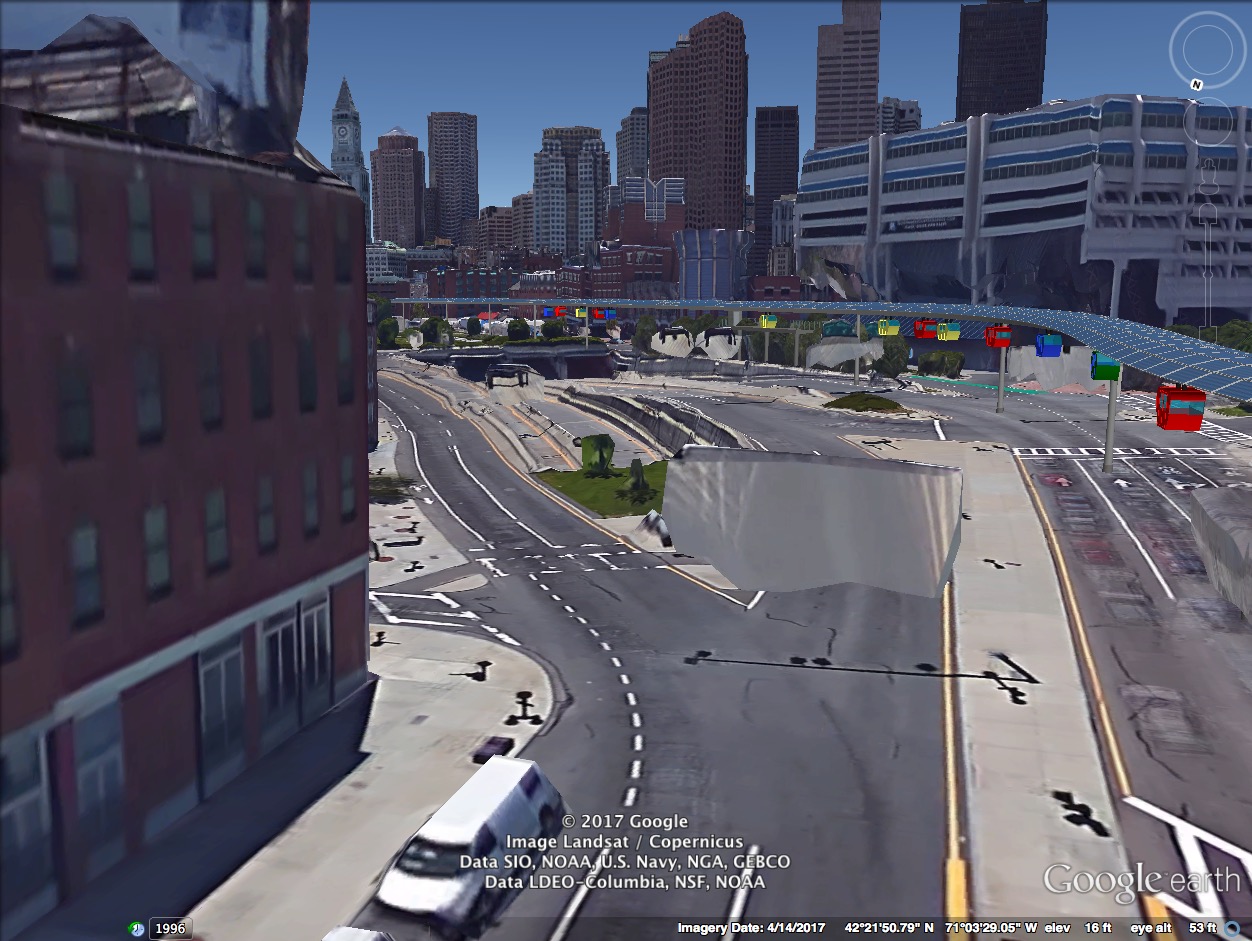
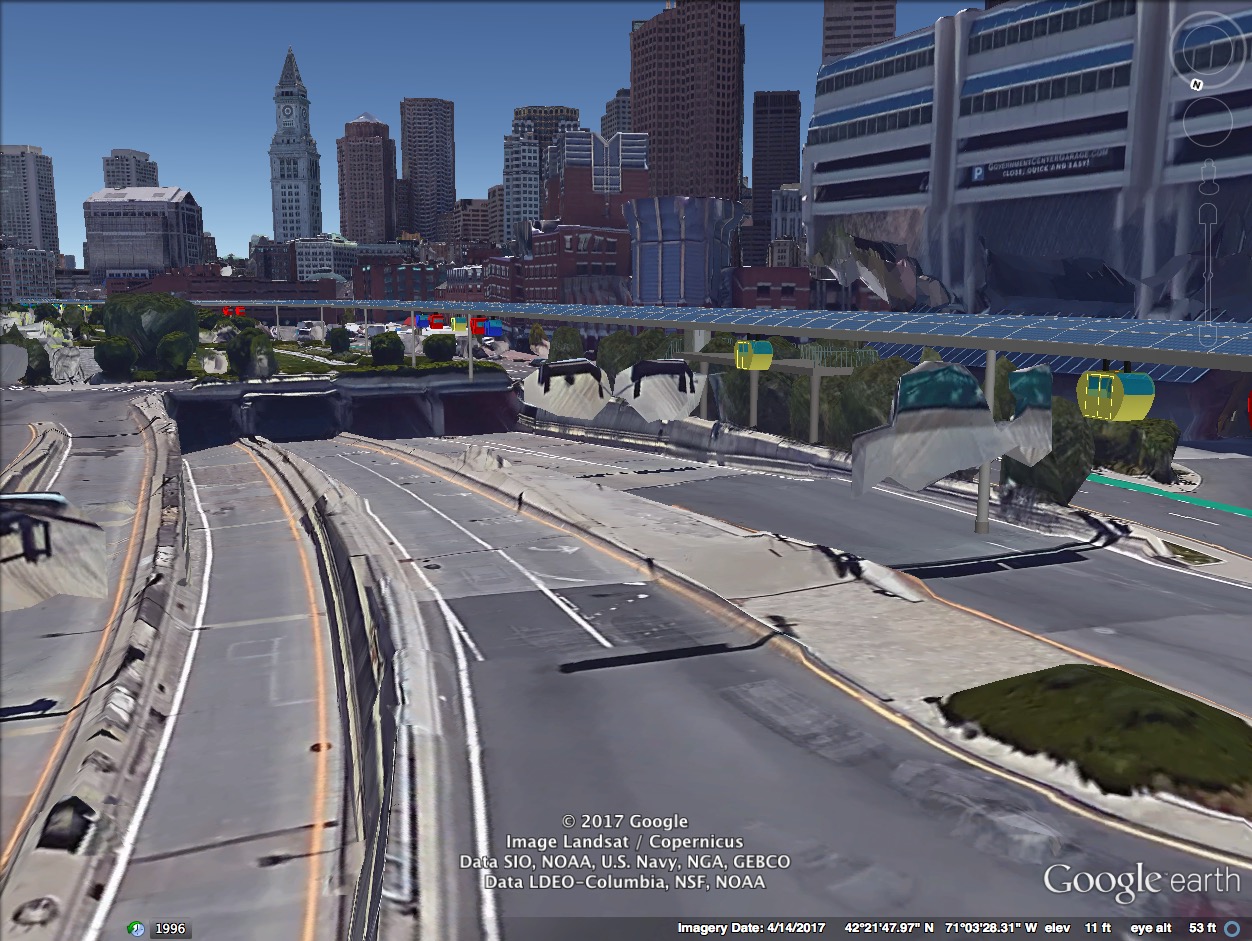
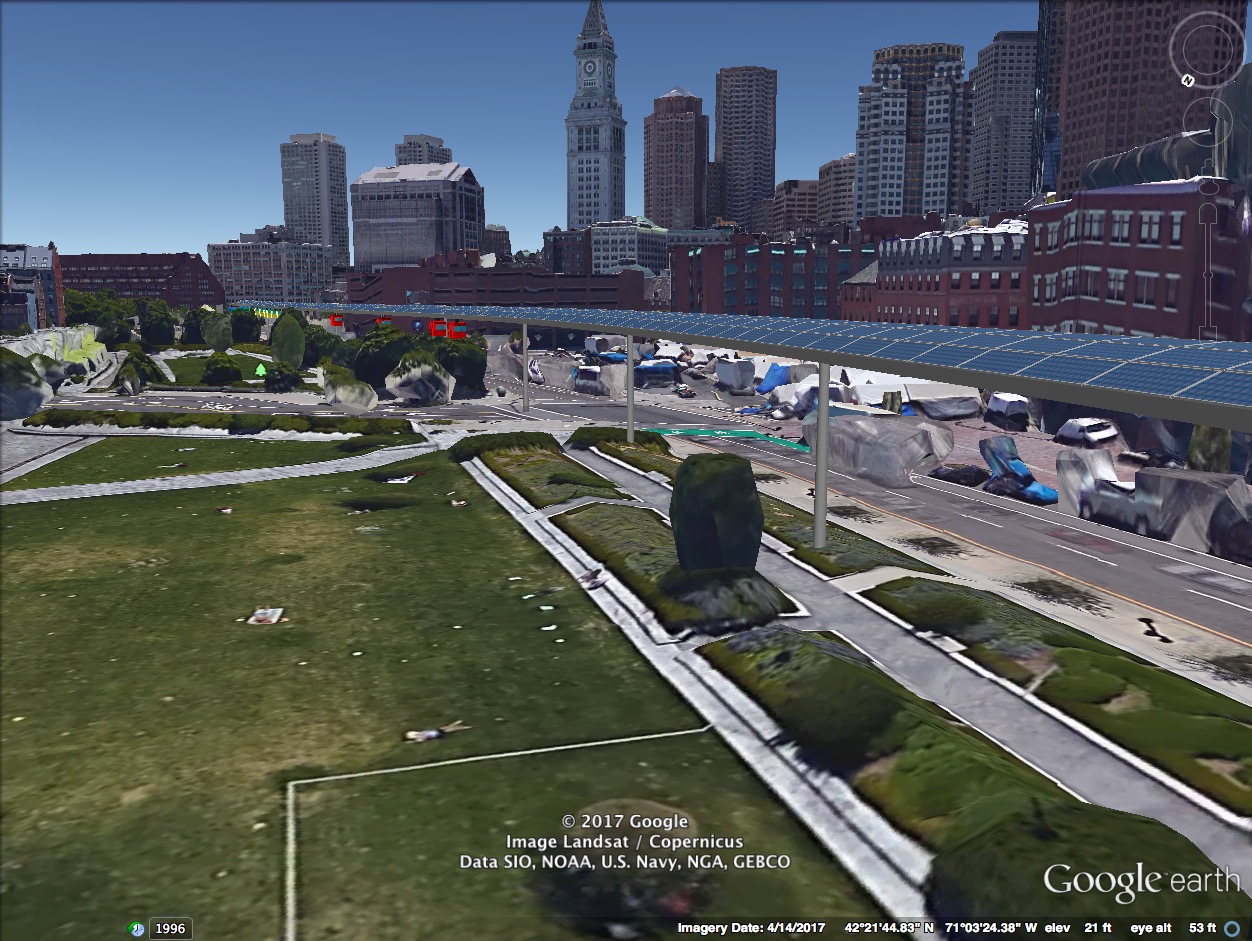
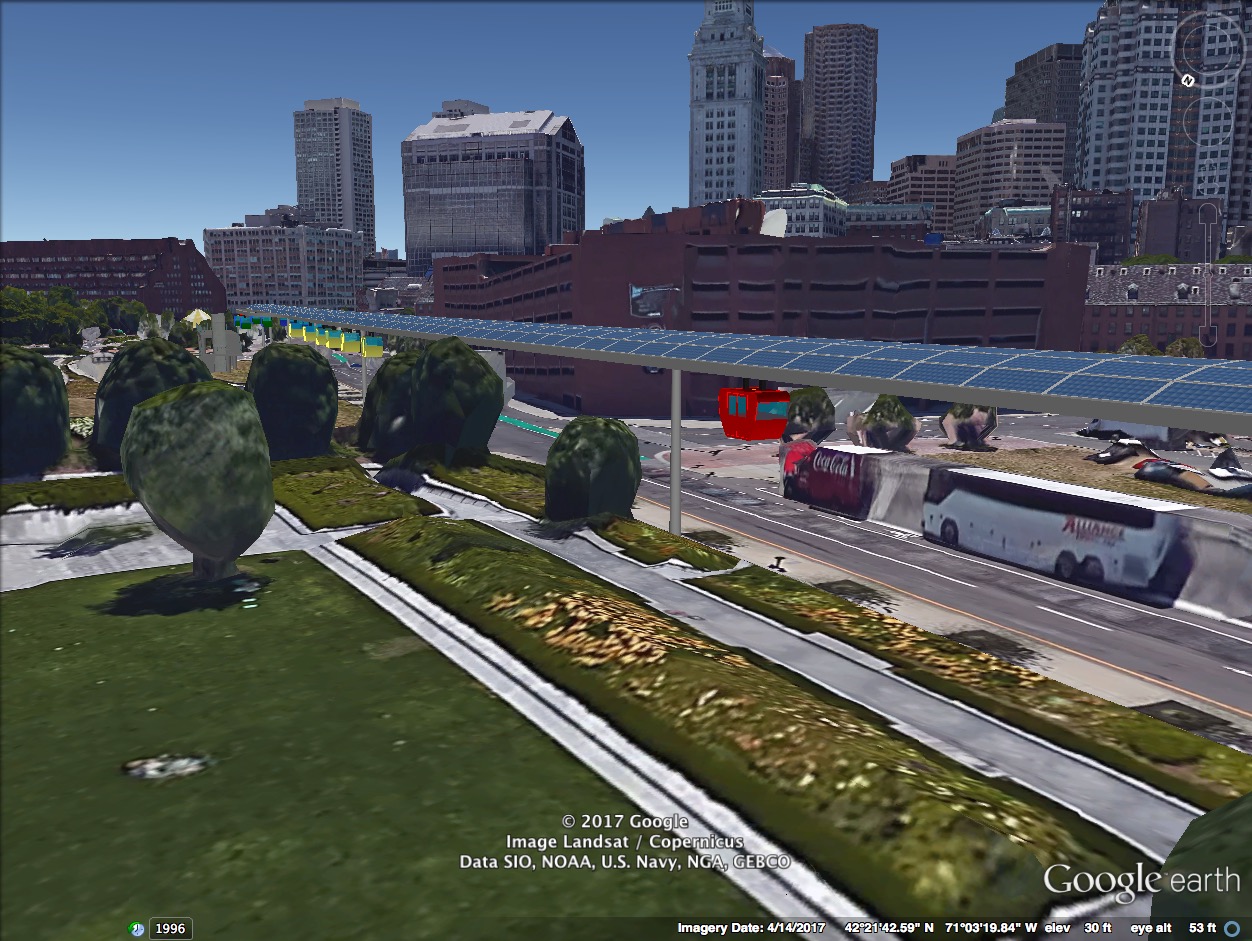
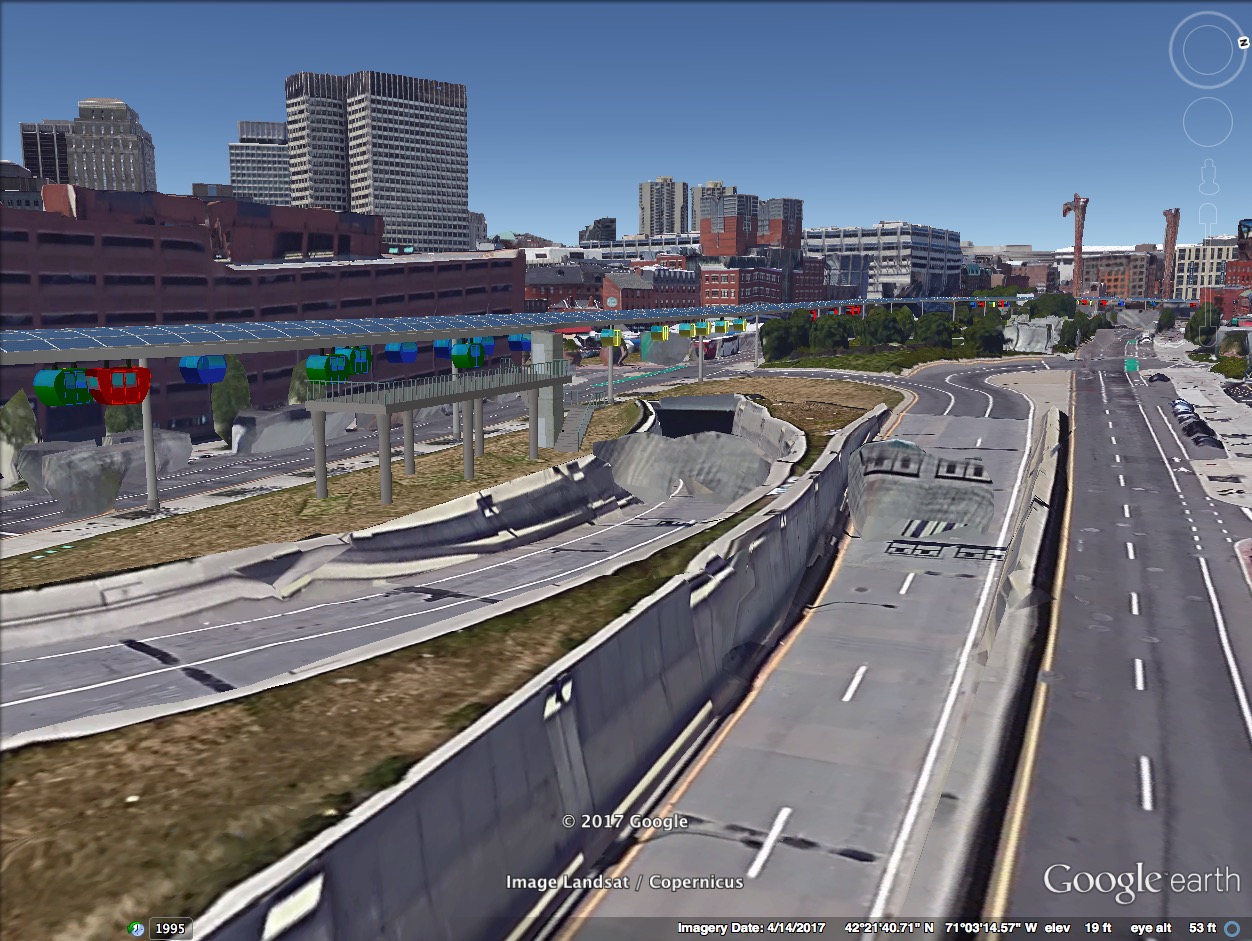
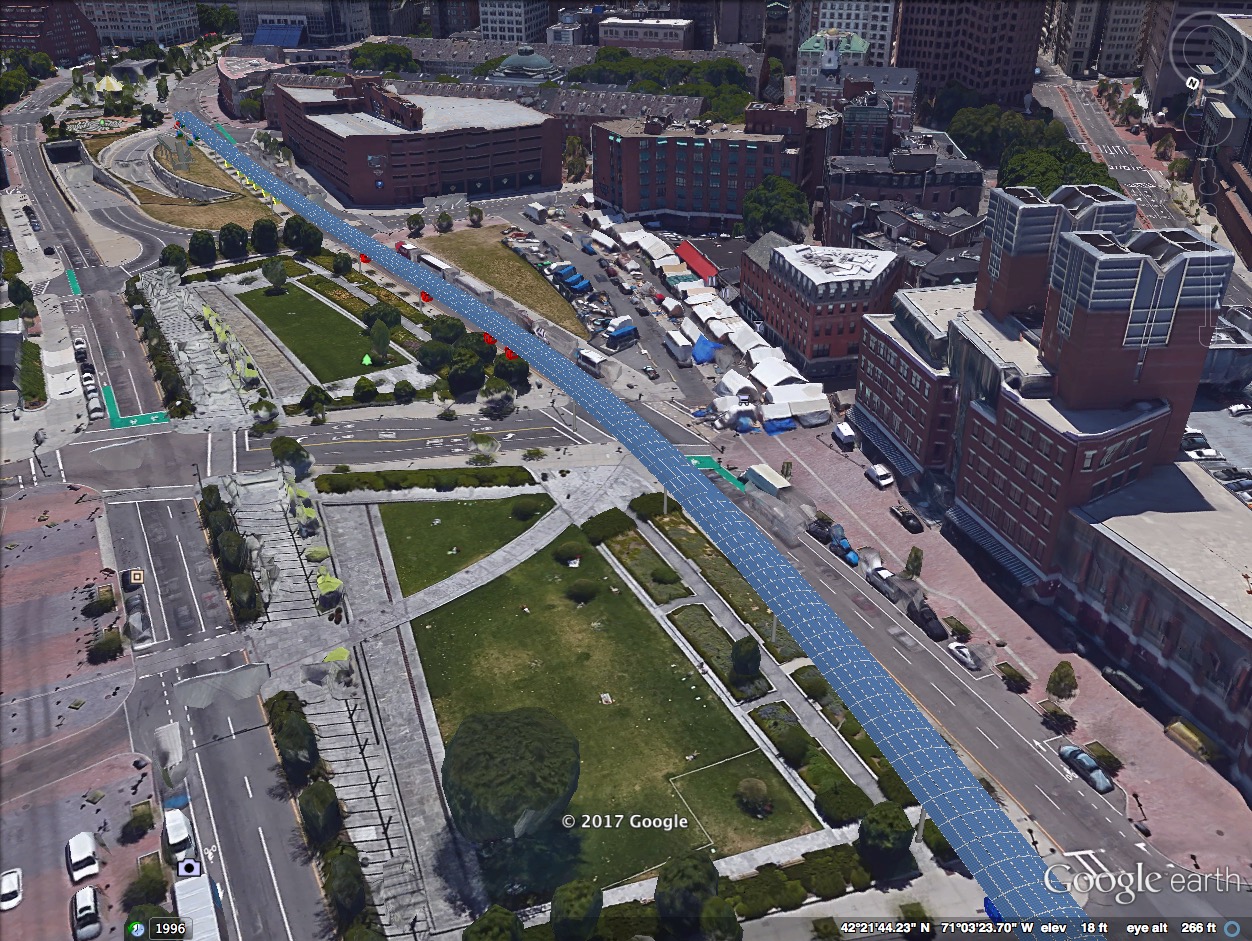
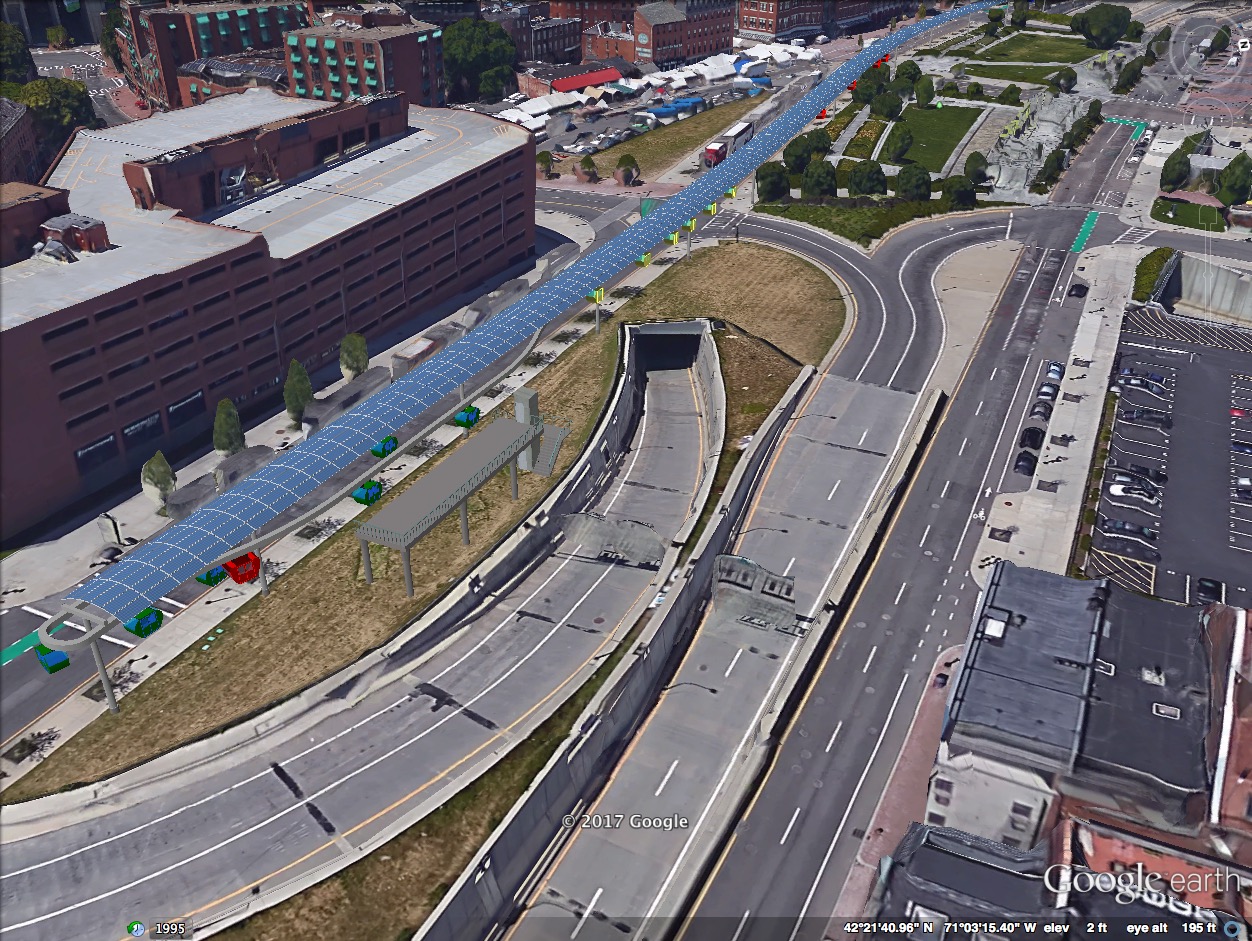
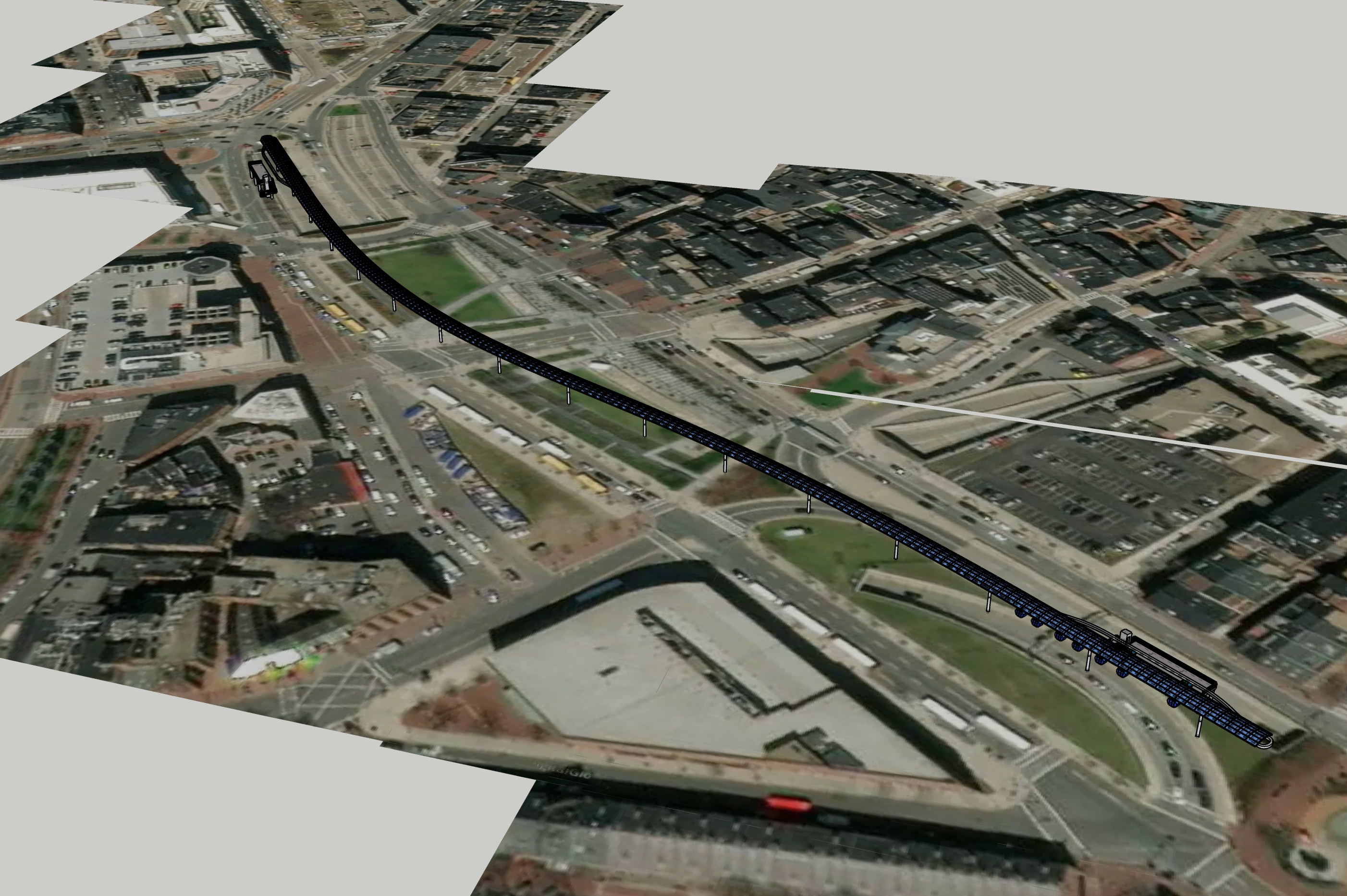
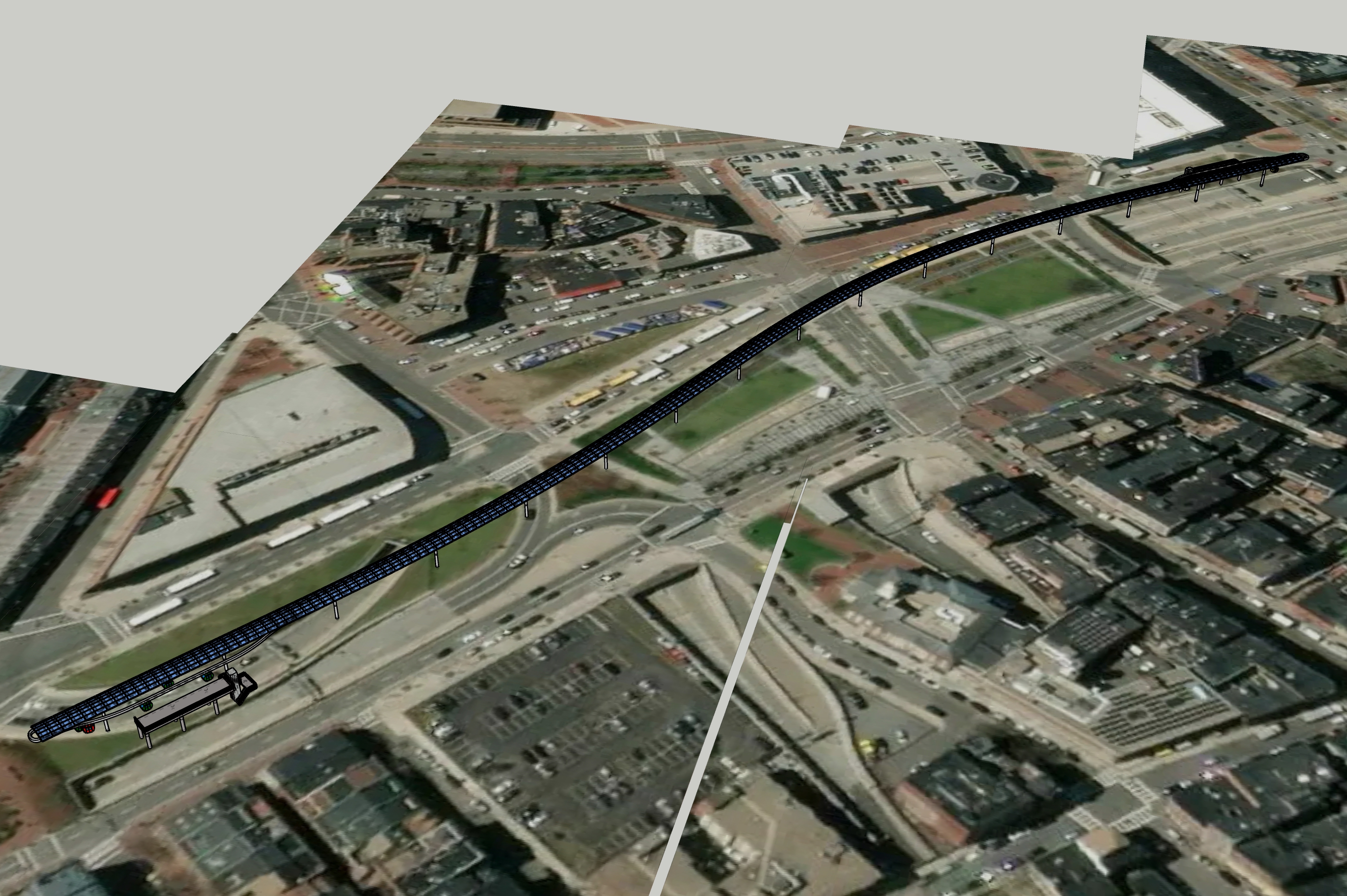
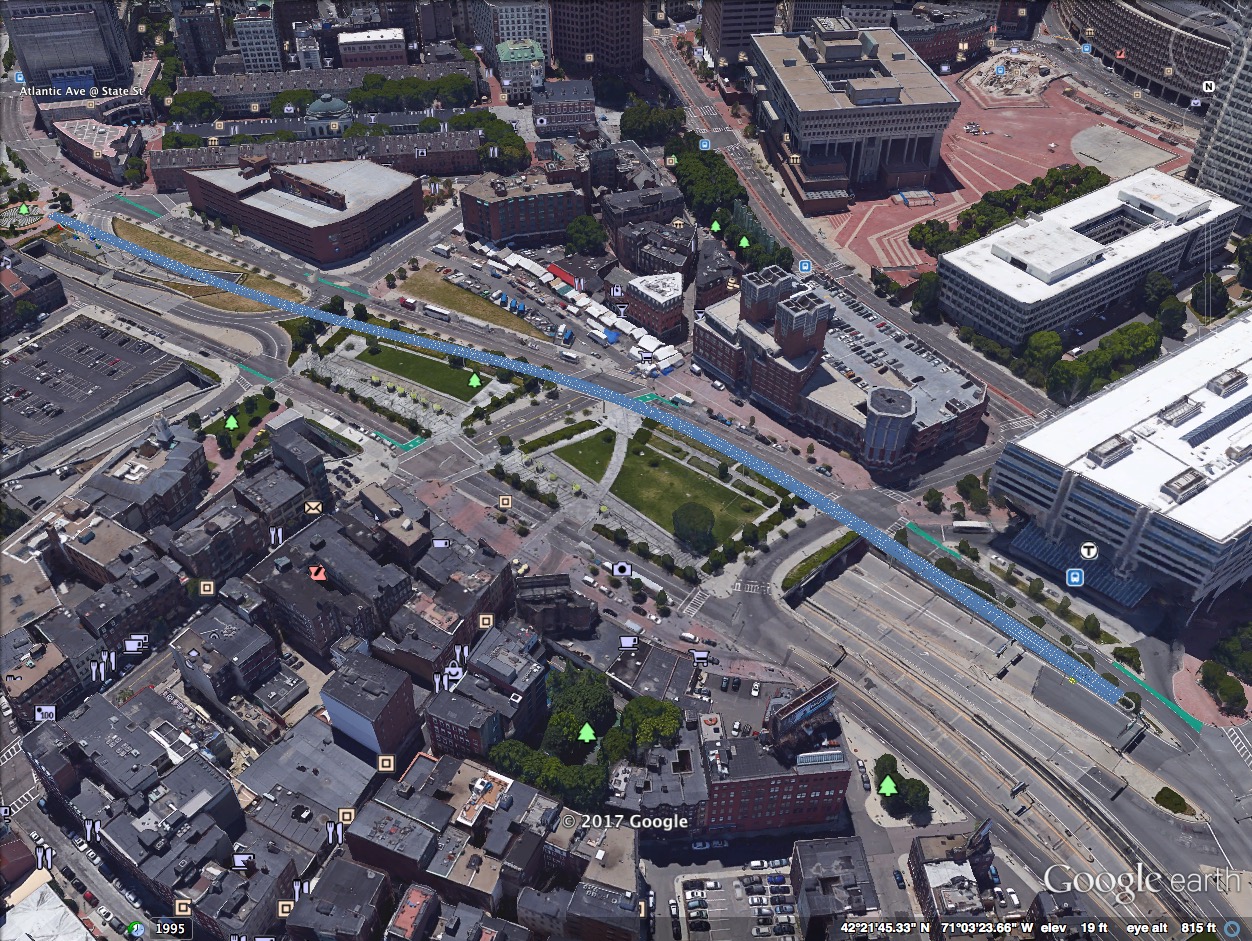
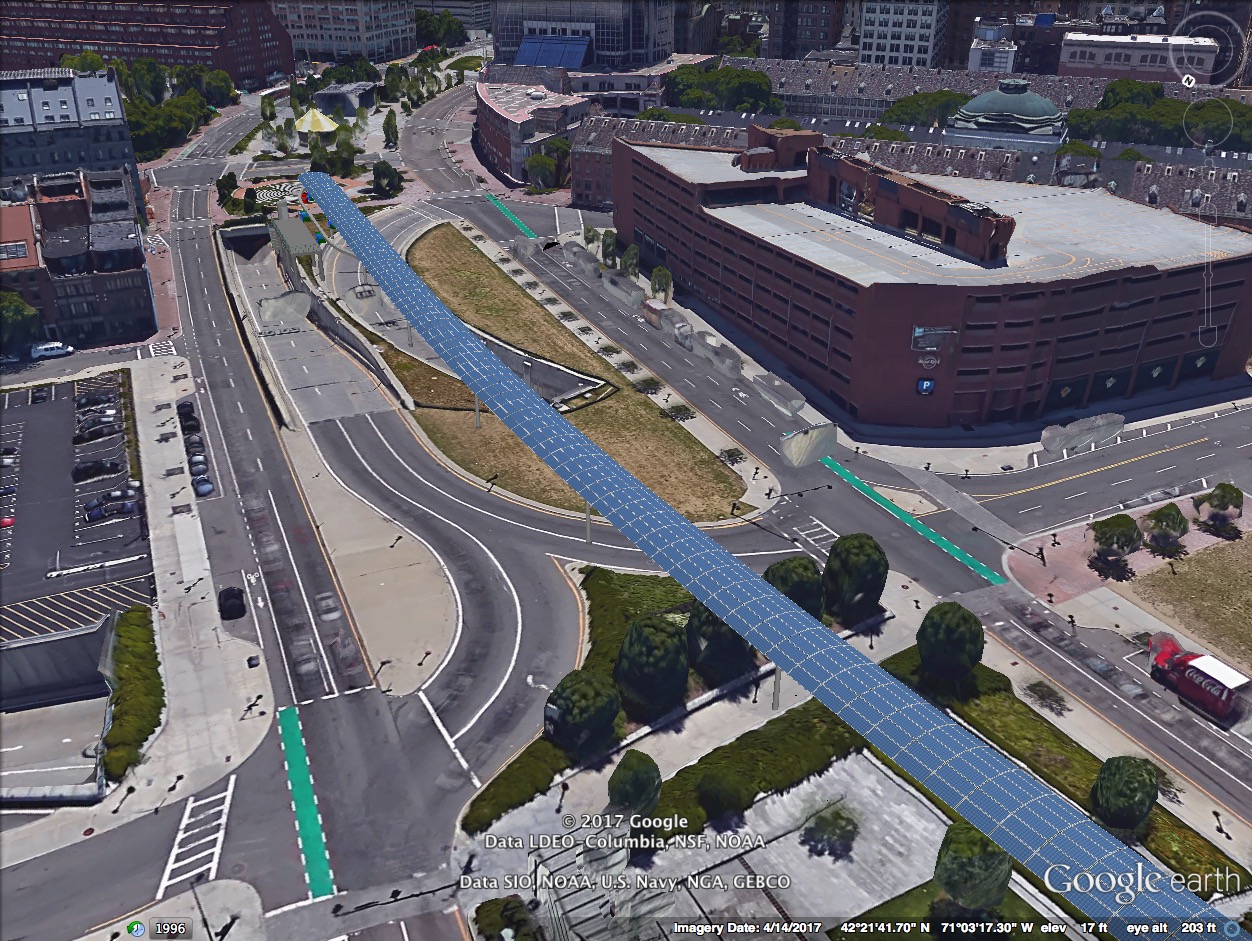
Mass. Pike in Allston, Soldiers Field Road are set for a major overhaul
Theme by Danetsoft and Danang Probo Sayekti inspired by Maksimer
